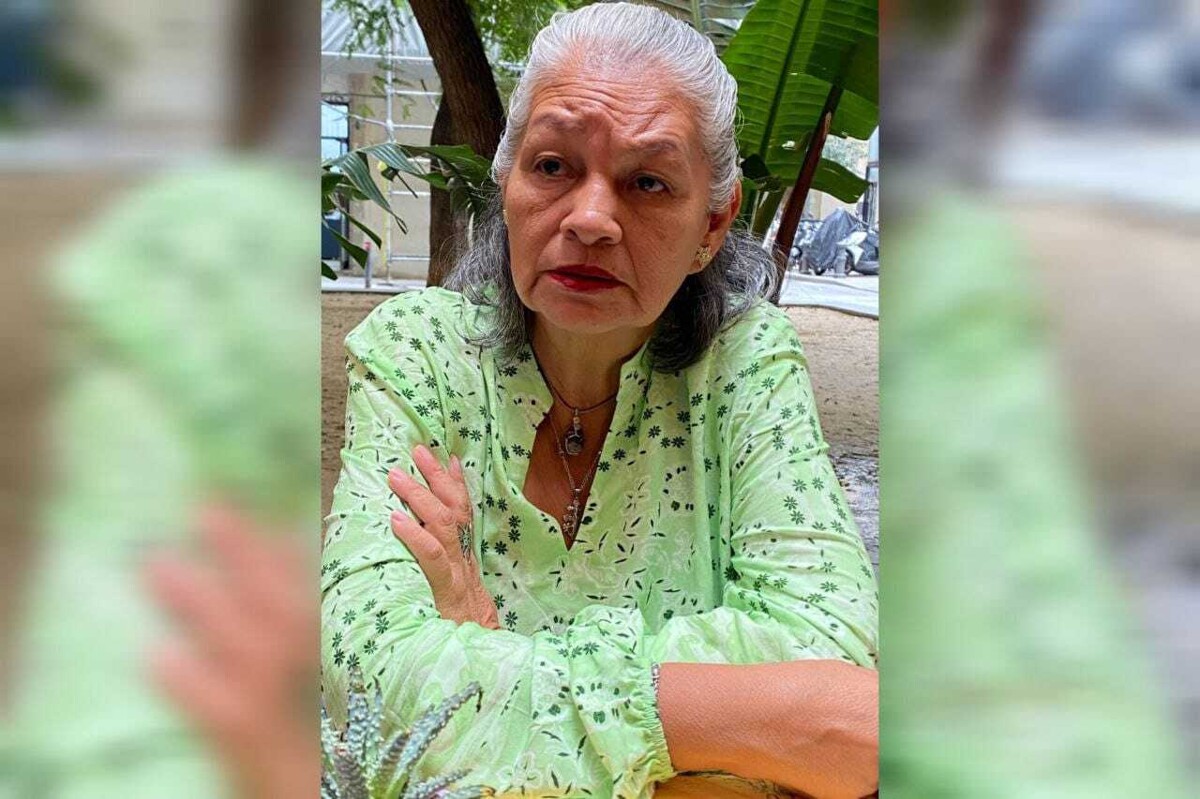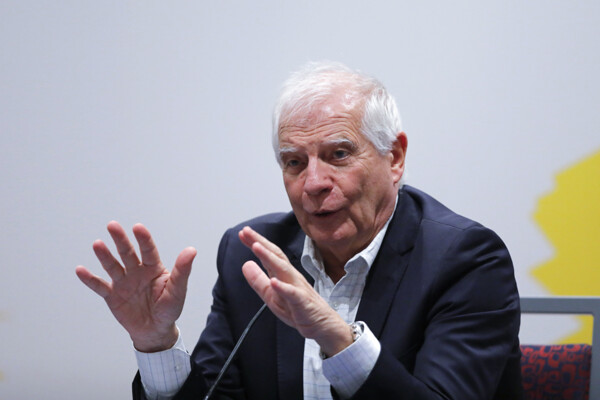
Mexico has been suffering for nearly two decades from the consequences of the so-called 'War on Drugs,' a process that has only served to deepen the roots of organized crime in power, militarize the country, and multiply the number of murders and disappearances of people. This year, the number of missing persons has exceeded 130,000 reports.
In this context, Lourdes searches for two of her sons in Jalisco. First, her son José Marcos Alejandro Maldonado Ruiz disappeared along with three other young people in 2015, and five years later, in 2020, her daughter María de Lourdes Maldonado Ruiz was kidnapped from her home in front of her 8-year-old daughter.
Accompanied by a network that supported and encouraged her to express her pain, last year she published the book 'Hasta Encontrarles. Crónica de una Esperanza en Jalisco' ('Until We Find Them. A Chronicle of Hope in Jalisco') with the publishing house La Rueda Cartonera, which compiles years of searching and fighting against the Mexican narco-state. Thanks to the efforts of feminist and migrant collectives that supported her stay, she presented the book in Madrid and Barcelona, where this interview was conducted.
Lourdes Ruiz is one of the thousands of 'Searching Mothers' who today fight for the reappearance of their children alive in a Mexico that already has more than 130,000 reports of missing persons. For social organizations of mothers and relatives who search for their loved ones and take on cases that do not reach official reports, the real figures are much higher than the official ones.
'When I came, in Jalisco we were already a high number in disappearances. In the prisons we speak with the inmates, to have them tell us, or before being in prison, that they have lived with them, that they have seen them in some place. We went to look, and that's when I started with the collective, but... it's desperation. And this is a work that can only be done in small collectives, because covering the 130,000 throughout the territory, with 70 or 80 disappearances per day, you lose the ability to name each case,' she says.
Lourdes says that ten years ago the number of missing persons was 30,000. 'Now at the Mexico level, considering the huge amount of missing persons and that you are doing a very artisanal job of giving a face to each missing person, putting a story, reconstructing who they were, filling that encyclopedia besides the memories that you are collecting from the people...'
'There seems to be much more, much more, yes, the work continues, the processing continues. The last time we had heard internationally of such a strong case in Mexico, before Rancho Izaguirre, was when the 43 from Ayotzinapa disappeared, and with the 43 from Ayotzinapa, a little because the focus turned to see what was happening in Mexico that 43 students could disappear and nothing would happen,' she adds.
She emphasizes that the problem has existed since Felipe Calderón, with all the presidents and governors. 'We do not receive support from the government. They tell us they are going to help, that they are going to find ways to help us locate people, but they are just words... words are carried away by the wind,' says Lourdes.
She also mentions that Jalisco is the Mexican state with the most cases, and not long ago they found the extermination center, Rancho Izaguirre. 'And we do not count the people who do not file a complaint because they are threatened,' she adds.
Lourdes talks about how they search for the missing: 'We go out on the roads and in the mountains to scratch the earth, but we also go to prisons, we talk to inmates... We also go to morgues and forensic science institutes. And we make a note if it matches someone from the group we are looking for. We have an encyclopedia where we are compiling the tattoos, the photographs, and everything we have of the missing.'
She also says they search for the missing in places where drug users are, in rehabilitation centers, and in hospitals. 'That is why, for that reason, I have never received a call. There are families that receive calls and they are told 'deposit 300 thousand pesos now, 500 thousand now.''
She also tells how they find remains: 'When we find remains that are not part of our collective, is there a meeting with that family, do you talk to them or do you just help find the remains? No, we accompany them until the last moment, from the moment they are informed at the SEMEFO (Forensic Medical Service), that there is a positive for your family member, for example, the head or the torso.'
She also says they leave DNA samples at the forensic institute and the prosecutor's office. 'We know where you live and we know that you have more children,' they say to intimidate the parents. 'And what if you don't want to lose more children?'
Lourdes also talks about how they sell food to raise money to help families of the missing. 'We sell pozole, we sell food, we ask for people's support, for them to donate clothes for us to go sell them at the dumps, at the tianguis (fairs), so we go to sell to raise funds for those people, so that even if they sleep on the floor, they have a roof...' she says.
She also talks about how she met other mothers: 'When I started, there were only three or four collectives. I started alone, I went alone because I didn't know about the networks, I didn't know that these collectives existed. But when they took my daughter from her house, one of my daughters told me: 'Mom, don't go look for you alone.'
She says they created the foundation 'Entre Cielo y Tierra' ('Between Heaven and Earth') because they saw the need for all the people who come from outside. 'That is how we do it, that is how the search in life is done.'
She also says they made the book to expand her voice: 'They invited me to do the book and I was totally blocked, I said, wait, I don't know, I don't speak, I don't even know what to say, I am totally blocked.'
She says that what is most urgent for them is dissemination: 'Right now, what we need most is dissemination, because it doesn't reach you. And what we are doing is going to other cities and leaving DNA.'
She also says she wants the book to be published in Argentina too: 'Of course, it would interest me, I have always said, since I presented the book, that this, through all of you, would reach the last corner of the world.'
She also says she wants to continue searching for her children: 'I want to continue searching for my children, and now, with the book, that it reaches the last, wherever it needs to reach.'














